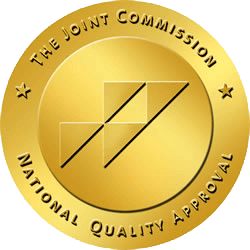Experiencing personal challenges as a teen can be painful and confusing. Some kinds of struggles are invisible to others, but they still deeply affect the way you think and feel, even how you feel about yourself. In the midst of these private battles, you may truly want help, for someone who can lend a hand and get you through it all. But it can be particularly hard to work up the courage to ask for help.
Why Is It Hard to Ask for Help?
Even though mental health treatment can dramatically improve your life, you may still have a strong resistance to the idea. This often comes from the stigma associated with mental health illnesses. Perhaps you are concerned that others will look down on you. Maybe you have a fear that you will be detained against your will. Or it could be that you are embarrassed about revealing personal matters to a stranger. Believe it or not, all of these are very common reasons why people don’t get the help they need. The truth of the matter is that seeking help, whether from family, friends or professionals, is a perfectly wise, safe and appropriate course of action. For some, getting treatment may be the only effective way of dealing with the struggles they’re facing.
First Steps in Getting Help
It’s important to take an active role in managing your own health. This includes learning to recognize early signs of mental health disorders, so you know when to take steps to prevent serious problems. Performing an honest evaluation to determine your level of distress is a great place to start. Distress refers to negative feelings or experiences you may be having. In other words, consider whether you’re dealing with emotions like sadness, anger, anxiety, fear, grumpiness, confusion, or helplessness. Everyone feels these things from time to time, and they are part of the normal ups and downs of life. But if you experience them frequently, intensely and for extended periods of time, it may indicate a more serious concern. The self-check questions below are useful for thinking through your situation. If you answer, “yes” to any of them, you should speak to someone who can help:
- Does your distress lead to dangerous thoughts or behavior, such as considering suicide or physically harming your body?
- Does your distress last for a long time (weeks, months or years)?
- Does your distress seem out of proportion to your problems?
- Do you feel distressed frequently and you’re not sure why?
- Do you continue feeling bad even when good things happen?
- Do you feel a need to use alcohol or drugs in order to feel better?
Suggestions for Moving Forward
If you determine that it’s time to seek assistance, there are many ways to proceed. Here are a few suggestions that can help you move forward:
- Determine what you need help with. As best you can, try to figure out exactly what is bothering you. Use the self-check questions above (or other similar ones) to zero in on what you’re feeling. Being specific makes it easier to ask for help and for others to know what help you need.
- Remember that people like to help. Keep in mind that most people are truly glad to assist someone who needs help and is grateful for it.
- Talk to those you trust. This could be a parent, family member, teacher, school counselor, spiritual leader or any other adult. It should be someone who gives good advice, respects your privacy and lets you talk freely about your feelings and emotions without judging, teasing or criticizing.
- Understand you’re not alone. It may feel like you’re the only one in the world who suffers from mental health struggles. But there are many who are experiencing similar issue to varying degrees. Knowing that others have had the courage to seek help can motivate you to do the same.
If you’d like to enquire about receiving help for addiction, give us a call at 877-466-0620.


